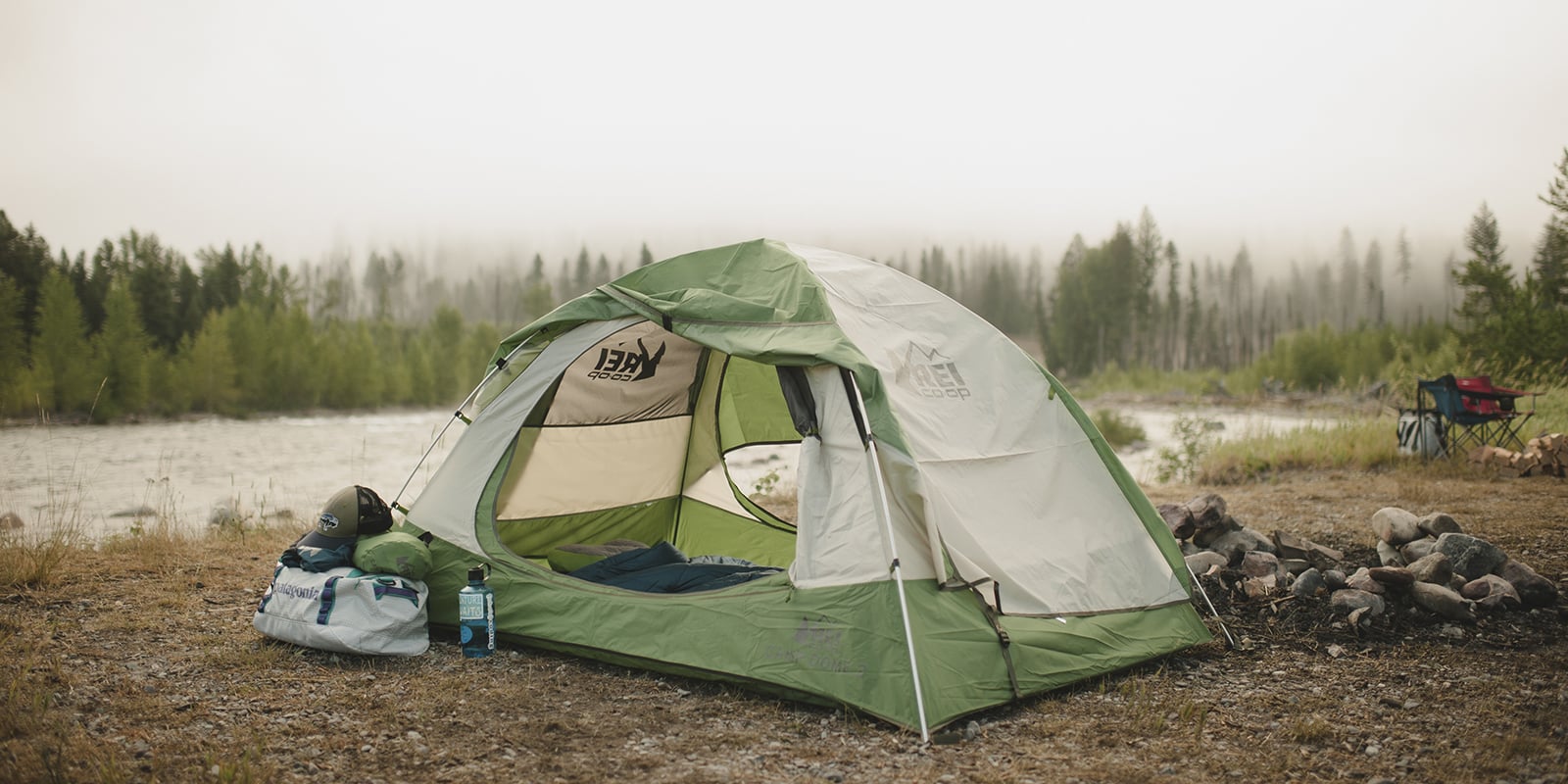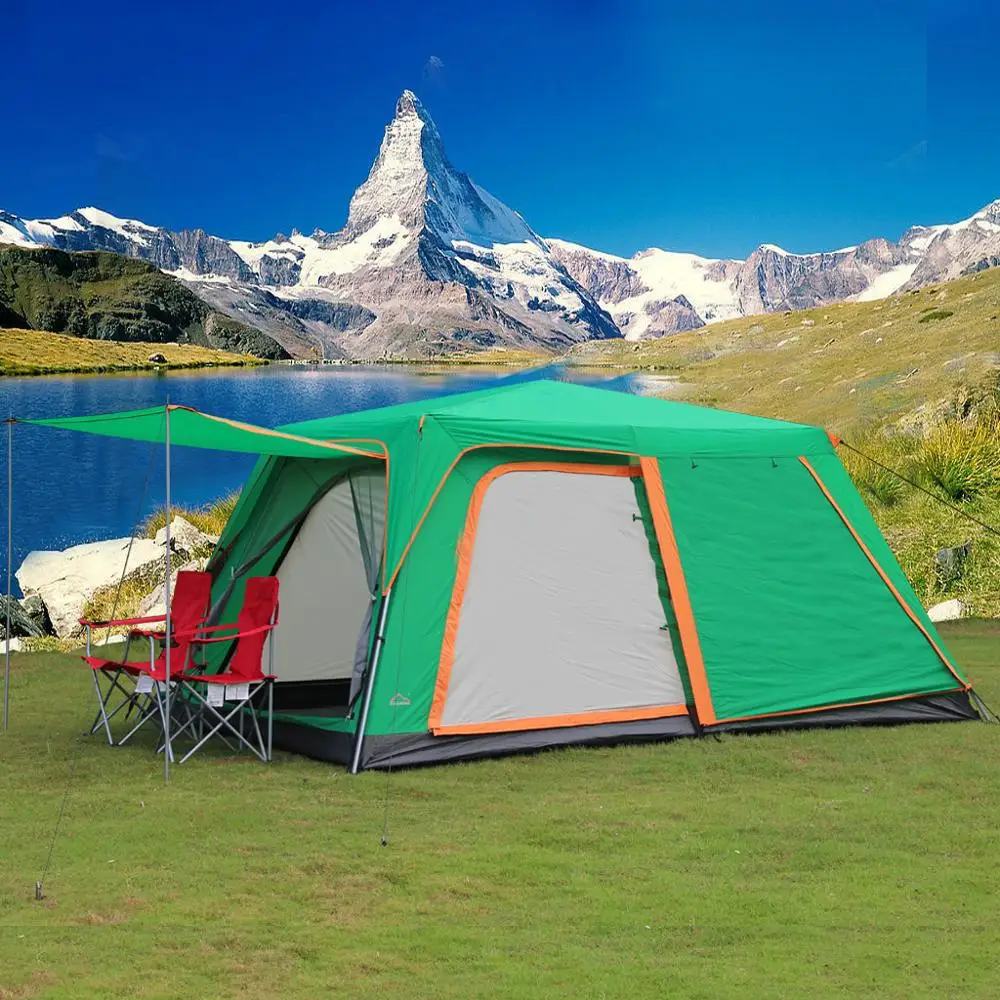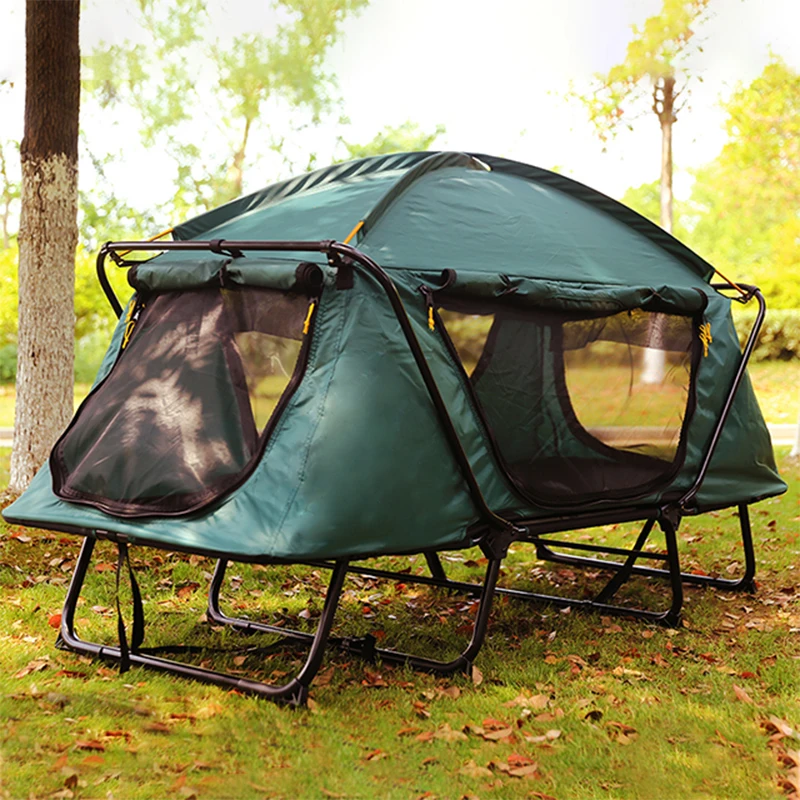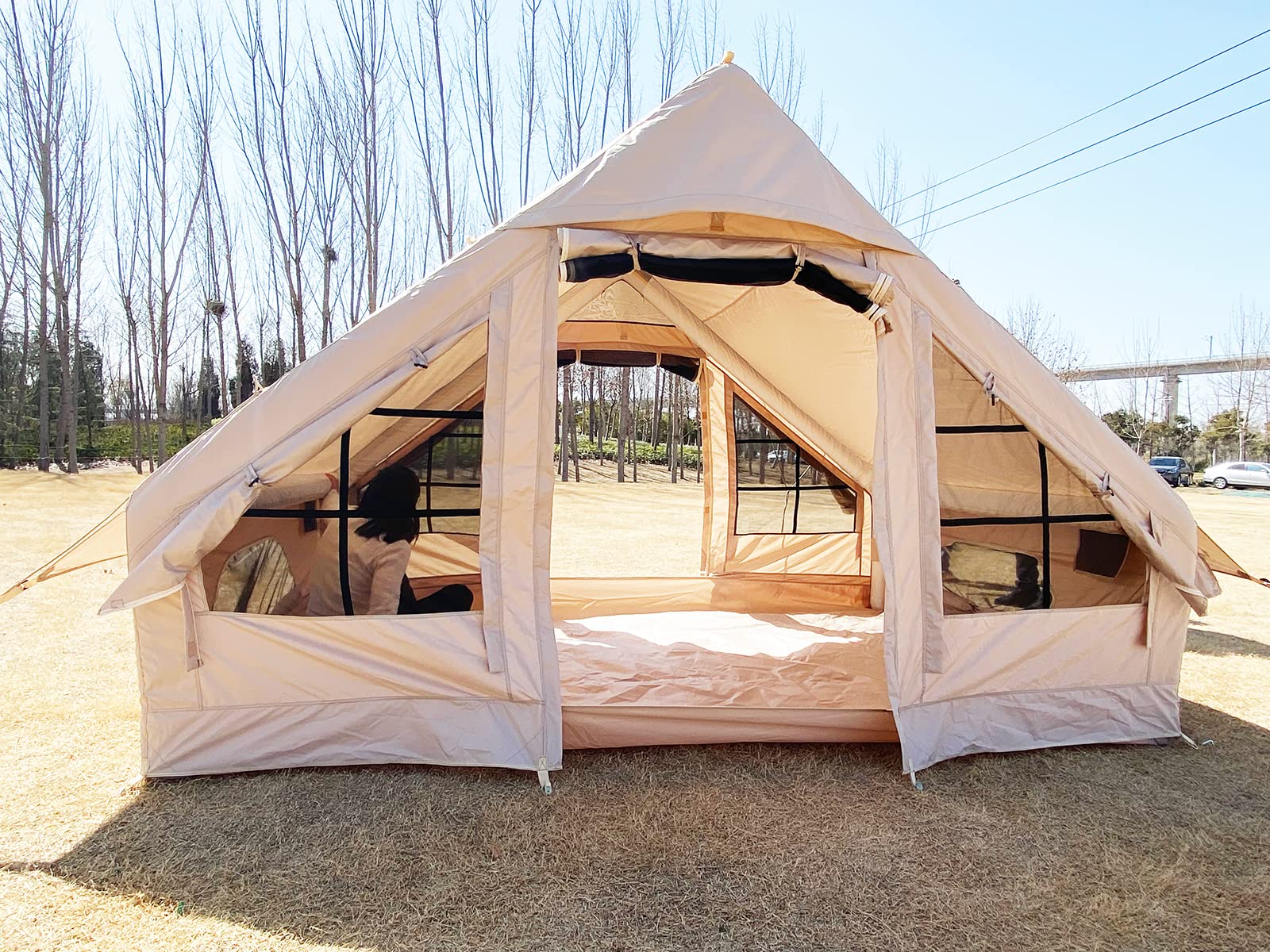Introduction to Tent Materials
A.Importance of Choosing the Right Tent Material
Choosing the right tent material is crucial when it comes to outdoor camping and backpacking. The material of the tent affects its durability, weight, weather resistance, and overall performance. The right tent material can ensure protection from the elements and provide a comfortable shelter during your outdoor adventures.
B. Factors to Consider When Selecting Tent Material
When selecting tent material, several factors should be considered:
- Durability: Look for materials that are durable and can withstand rough conditions, such as abrasion-resistant fabrics or reinforced stitching.
- Weight: Consider the weight of the tent material, especially if you plan on backpacking or hiking long distances. Lightweight materials, such as silnylon or Dyneema, are ideal for minimizing the overall weight of your gear.
- Weather Resistance: Assess the tent material’s ability to withstand different weather conditions, including rain, wind, and UV rays. Look for fabrics that are waterproof, have a high hydrostatic head rating, and provide UV protection.
-
Breathability: Choose a tent material that offers good ventilation and breathability to prevent condensation inside the tent. This is particularly important in humid or warm climates.
- UV Resistance: Ensure the tent material has UV resistance to protect against harmful sun rays. UV-resistant fabrics help prolong the lifespan of the tent by preventing degradation of the material due to sun exposure.
- Ease of Maintenance: Consider the ease of cleaning and maintaining the tent material. Some materials may require special care, while others can be easily wiped clean or machine washed.

C. Common Types of Fabrics Used in Tent Construction
Various fabrics are commonly used in tent construction, each with its own properties and characteristics. Some common types include:
- Nylon: Nylon is a popular choice for tent materials due to its lightweight, durable, and water-resistant properties. It is also known for its excellent tear resistance.
- Polyester: Polyester is another common fabric used in tents. It offers good durability, UV resistance, and water repellency. Polyester tents are often more affordable compared to nylon ones.
- Ripstop: Ripstop fabrics are woven with reinforced threads in a grid pattern, making them highly resistant to tearing. They are often used in areas of the tent that are more prone to stress or wear.
- Canvas: Canvas is a heavy-duty fabric that provides excellent durability and weather resistance. It is often used in larger tents or for more extended camping trips where weight is not a primary concern.
- Silnylon: Silnylon is a silicone-coated nylon fabric that offers enhanced waterproofing and lightweight properties. It is commonly used in ultralight backpacking tents.
- Dyneema Composite Fabric (DCF): DCF, formerly known as Cuben Fiber, is a high-performance and ultralight fabric that offers exceptional strength and water resistance. It is commonly used in premium, lightweight tents.

Natural Fabric Options for Tents
When it comes to natural fabric options for tents, two popular choices are cotton and canvas. These fabrics offer unique properties that make them suitable for various camping scenarios. Here are the advantages and considerations of each:
A. Cotton: Breathable and Durable
- Advantages of Cotton Tents:
- Breathability: Cotton allows air to circulate within the tent, reducing condensation and providing a comfortable sleeping environment.
- Durability: Cotton is known for its long-lasting nature, with proper care and maintenance, cotton tents can withstand years of use.
- Insulation: Cotton has natural insulating properties, keeping the tent cooler in hot weather and warmer in cold conditions.
- UV Protection: Cotton offers inherent UV resistance, protecting occupants from the harmful rays of the sun.
- Noise Reduction: Cotton fabrics tend to dampen sound, providing a quieter camping experience.
- Considerations for Cotton Tents:
- Weight: Cotton is heavier than synthetic materials, making it less suitable for backpacking or hiking long distances.
- Drying Time: Cotton takes longer to dry than synthetic fabrics, which can be a disadvantage in wet or humid climates.
- Initial Treatment: Cotton tents may require initial weatherproofing treatments to enhance water resistance.

B. Canvas: Sturdy and Weather-resistant
- Benefits of Canvas Tents:
- Weather Resistance: Canvas is naturally water-resistant and provides excellent protection against rain and wind.
- Breathability: Similar to cotton, canvas allows for airflow, reducing condensation and maintaining a comfortable interior environment.
- Durability: Canvas tents are known for their sturdiness and ability to withstand harsh weather conditions.
- Longevity: With proper care, canvas tents can last for decades, making them a cost-effective choice in the long run.
- Factors to Note about Canvas Tents:
- Weight: Canvas is a heavy fabric, making canvas tents less suitable for backpacking or trekking.
- Initial Maintenance: Canvas tents may require seasoning or initial waterproofing to enhance their natural water resistance.
- Price: Canvas tents generally tend to be more expensive compared to tents made from synthetic materials.

Synthetic Fabric Options for Tents
Synthetic fabrics like polyester and nylon are widely used for tent construction due to their lightweight and durable properties. Here are the advantages and considerations of each:
A. Polyester: Lightweight and Water-resistant
- Advantages of Polyester Tents:
- Lightweight: Polyester is lighter than natural fabrics, making it ideal for backpacking and hiking trips.
- Water Resistance: Polyester fabrics often have a water-resistant coating, providing protection against rain and moisture.
- Quick Drying: Polyester dries quickly, making it suitable for wet or humid climates.
- Cost-Effective: Polyester tents are generally more affordable than natural fabric options.
- Things to Keep in Mind about Polyester Tents:
- Breathability: Polyester may not be as breathable as natural fabrics, leading to potential condensation buildup in the tent.
- UV Degradation: Over time, prolonged exposure to sunlight can cause polyester fabrics to degrade and lose their strength.

B. Nylon: Lightweight and Highly Packable
- Benefits of Nylon Tents:
- Lightweight: Nylon is one of the lightest tent fabrics available, making it ideal for ultralight backpacking.
- Packability: Nylon tents can be compacted into small sizes, saving space in backpacks or luggage.
- Strength: Nylon has excellent tear and abrasion resistance, ensuring durability in rugged outdoor conditions.
- Considerations for Nylon Tents:
- Water Resistance: Nylon is naturally water-resistant but may require a waterproof coating or seam sealing for optimal protection against rain.
- UV Vulnerability: Nylon is susceptible to UV degradation and may require additional measures, such as UV protective coatings, to maintain its longevity.
When choosing between natural and synthetic fabric options for tents, consider the specific requirements of your camping trips, including weight, durability, weather conditions, and budget. Both natural and synthetic fabrics have their advantages and considerations, and selecting the right fabric will contribute to a comfortable and enjoyable camping experience.

